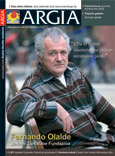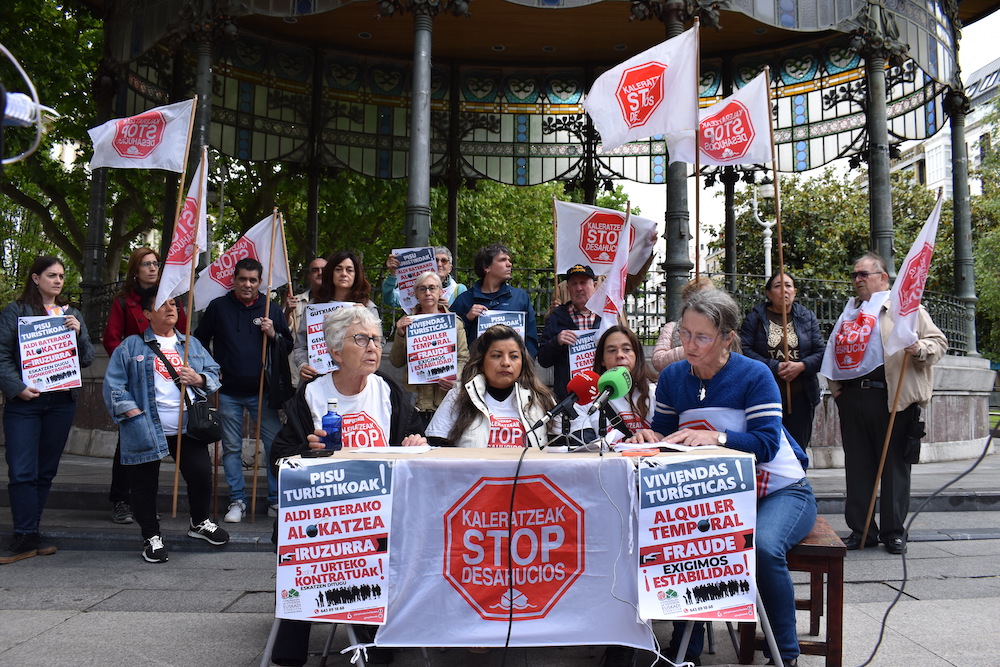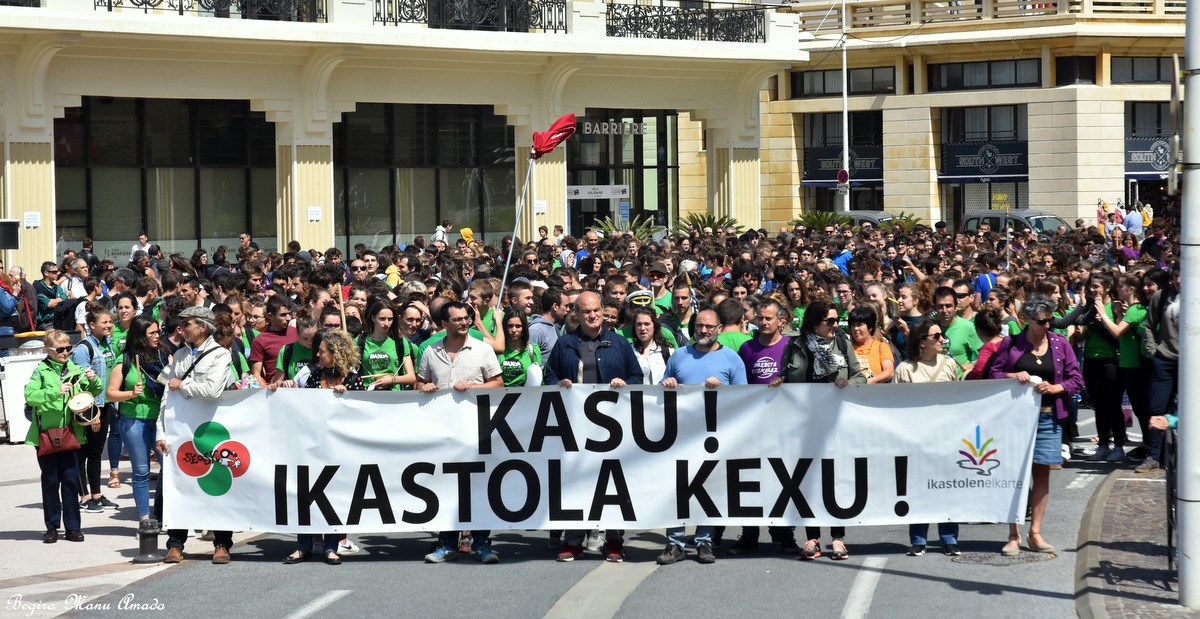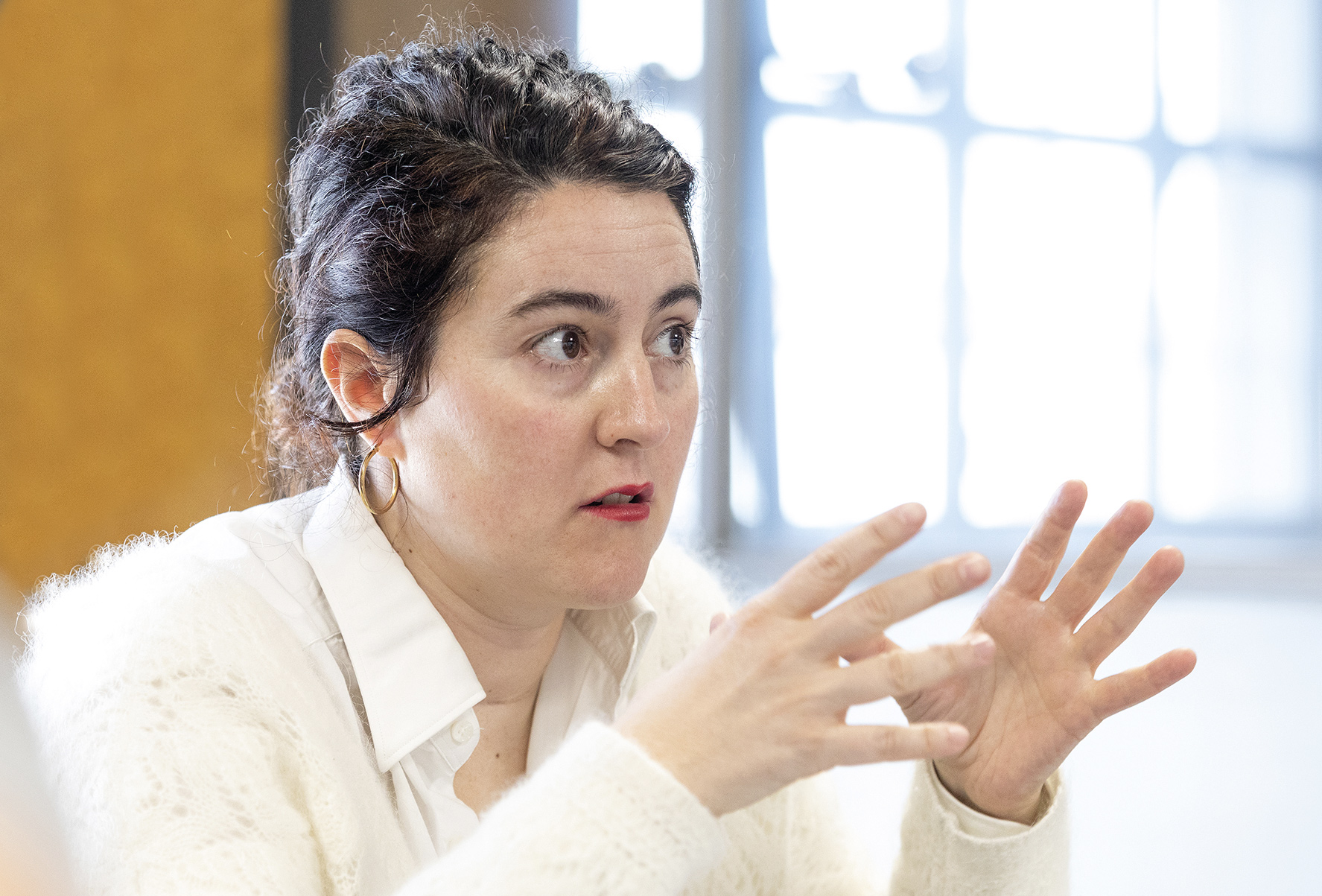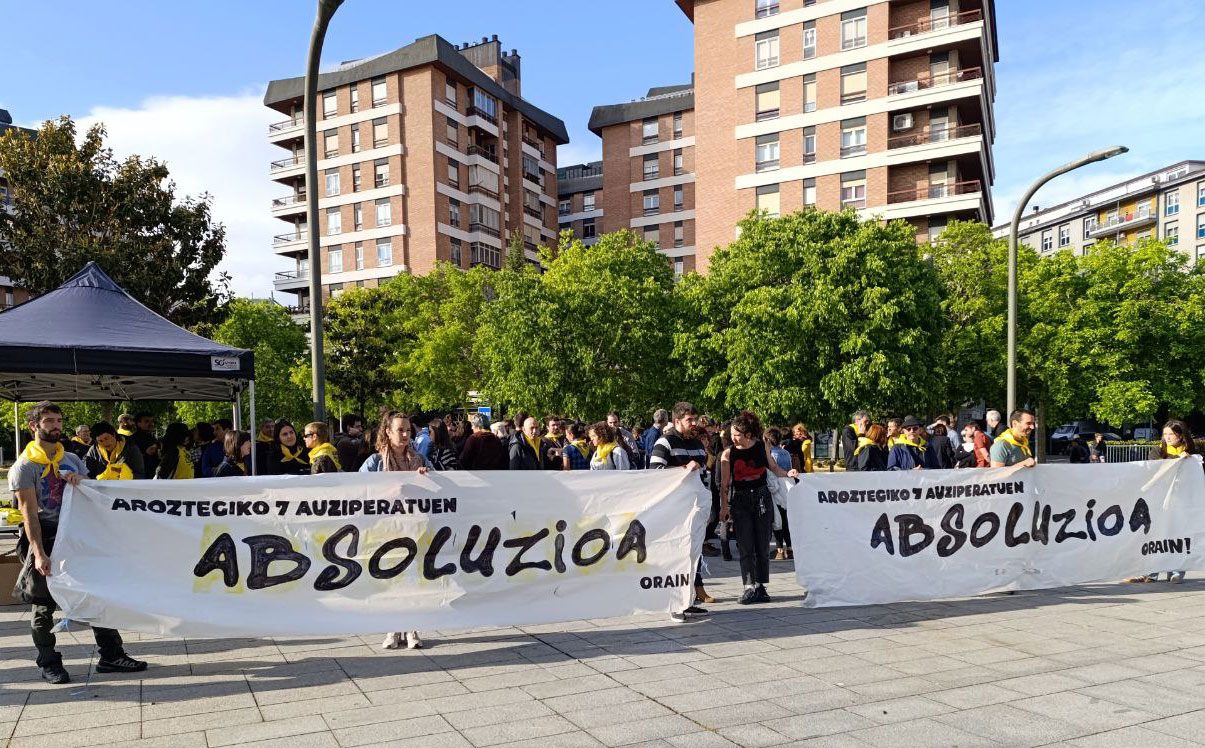Society
Environment
Politics
Economy
Culture
Basque language
Feminism
Education
International
Opinion
saturday 24 may 2025
Automatically translated from Basque, translation may contain errors. More information here. 
Looking for the public interest? (by Julen Zabalo)
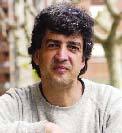
In an election campaign, the parties are said to seek to identify issues of public interest on which to make attractive proposals. For this reason, it is often desired to avoid abstention, since abstention would indicate the disinterest of the population. The theory requires practice, however, and the practice says that the parties themselves influence the determination of the interest of the citizens, mainly through the media, and more specifically through the treatment given to the new ones that are disseminated through the media.
However, practice now tells us that the State prefers certain citizens to resort to abstention rather than to involve them in the institutionalized political dynamics of society. I haven’t seen them yet, but institutional messages will soon begin encouraging people to vote. In such cases, people are asked to act responsibly; to fulfil their responsibilities as citizens. There are those who consider it compulsory for the people to vote, and those who condemn abstention. In the South Basque Country, on the other hand, there is a strong determination to exclude a significant number of citizens from the electoral game. Solid is another sign of Spain’s democratic tradition!
But it’s not the only gesture. In fact, this tradition does not allow to cultivate the independence that is the interest of many Basque citizens (although it can be claimed). To defend such a decision, there are many well-founded reasons: solidarity, avoidance of possible friction between citizens, etc. In addition, there are those who claim that, outside the national problem, there are thousands of issues of interest, and even those who consider other issues to be of real interest, unlike the national problem.
But going back to the beginning: what is the interest of citizens; who decides what it is; or how it is influenced to move one or the other. Without needing any special information, I would make a clear statement: In the Southern Basque Country, the national issue is of interest, and I could also say that it is of the greatest interest. These elections may have been aimed at responding to this great interest, but we know in advance that they are not. On the contrary, it is this issue that we do not want to respond to, and this is something that the political forces that present themselves are aware of. They know that the national question, which is of great interest to the citizens of the Southern Basque Country, requires a solution among all the political actors, and that leaving one of these forces on the sidelines of the elections, it is impossible to achieve a solution. Whose interest do they want to defend, then?
However, practice now tells us that the State prefers certain citizens to resort to abstention rather than to involve them in the institutionalized political dynamics of society. I haven’t seen them yet, but institutional messages will soon begin encouraging people to vote. In such cases, people are asked to act responsibly; to fulfil their responsibilities as citizens. There are those who consider it compulsory for the people to vote, and those who condemn abstention. In the South Basque Country, on the other hand, there is a strong determination to exclude a significant number of citizens from the electoral game. Solid is another sign of Spain’s democratic tradition!
But it’s not the only gesture. In fact, this tradition does not allow to cultivate the independence that is the interest of many Basque citizens (although it can be claimed). To defend such a decision, there are many well-founded reasons: solidarity, avoidance of possible friction between citizens, etc. In addition, there are those who claim that, outside the national problem, there are thousands of issues of interest, and even those who consider other issues to be of real interest, unlike the national problem.
But going back to the beginning: what is the interest of citizens; who decides what it is; or how it is influenced to move one or the other. Without needing any special information, I would make a clear statement: In the Southern Basque Country, the national issue is of interest, and I could also say that it is of the greatest interest. These elections may have been aimed at responding to this great interest, but we know in advance that they are not. On the contrary, it is this issue that we do not want to respond to, and this is something that the political forces that present themselves are aware of. They know that the national question, which is of great interest to the citizens of the Southern Basque Country, requires a solution among all the political actors, and that leaving one of these forces on the sidelines of the elections, it is impossible to achieve a solution. Whose interest do they want to defend, then?
Most read
Using Matomo
#1
#2
Xabier Letona Biteri
#3
Newest
2025-05-23
Xabier Letona Biteri
Chronicle of the Carpentry Trial (Day Five)
Without evidence, a harsh demand for punishment on the defendants
The Prosecutor and the Private Prosecution have confirmed the criminal charges against the seven defendants, who are sentenced to 46 months in prison and 56,000 euros in compensation for damages to the companies. The defendants’ lawyers have asked for their acquittal. The... [+]
2025-05-23
Maria Ortega Zubiate
Spanish government approves the largest photovoltaic power plant in Álava
231,000 panels will be installed across 100 hectares in the southwest of Álava: In Armiñón. EUskal will be the second largest solar park in the village.
2025-05-23
Gedar
New attempt to ban political prisoners in Spain
The PP has also proposed in the Senate to increase blackmail so that Basque political prisoners have to show remorse.
2025-05-23
ARGIA
The company that has signed Arantxa Tapia will design the government’s €1 billion investment
On May 22, the Basque Parliament approved a bill to indebt one billion euros to “influence science, technology, business and the industrial sector”. The media outlet Nago reported that the Basque Government has asked KPMG Asesores SL to develop the plan, which recently hired... [+]
2025-05-23
Irutxuloko Hitza
San Sebastian’s Stop Dismissal denounces the “fraud” of temporary rental contracts
A tenant from the Old Town of San Sebastian has managed to convert the rental contract for 11 months into a legal contract for five years.
2025-05-23
Maria Ortega Zubiate
Netanyahu Says ‘Palestine Liberated’ Today’s ‘Heil Hitler’
Netanyahu made statements after two employees of the Israeli embassy in Washington were shot dead. The Israeli Government has directly linked the Washington attacks to the statements of several European heads of Government against the massacre in Gaza.
2025-05-23
Jenofa Berhokoirigoin
French Education Minister Urged by Northern Basque Country Parliamentarians to Empower Seaska’s Resources
On 21 May, a letter was sent to the French Minister of Education, Elisabeth Borne, by the six parliamentarians of the Northern Basque Country. In view of the number of students there, the letter deplores the fact that the positions planned for the schools are "far too few".
2025-05-23
Elhuyar
Few companies in the global North are primarily responsible for conflicts related to the extraction of natural resources
Only one hundred multinational companies are behind 20% of all conflicts related to the extraction of natural resources, according to a study carried out by the Autonomous University of Barcelona. Research has shown that companies in countries in the global North are aware of... [+]
2025-05-23
Olaia L. Garaialde
"If we learn to eat with many rules, we may not notice the needs of the body"
The psychopedagogue Mireia Centeno Gutiérrez has given some clues about the feeding of children, such as the consequences of forcing them to eat and banning food.
2025-05-22
Xabier Letona Biteri
The defendants say that by group decision, everything was done peacefully.
The defendants testified on Thursday, and their statements could be summarized as follows: The citizens who gathered in the square of legumes or in the camping area decided collectively what to do, in general, to go to the field of the works and put them passively in... [+]
Eguneraketa berriak daude







